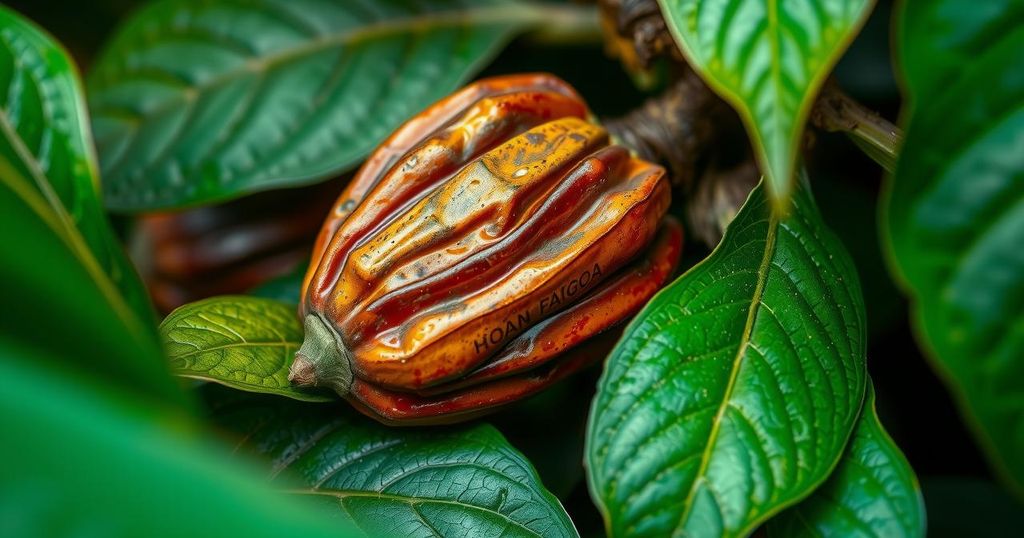Ghana’s Cocoa Sector Faces $1.3 Billion Revenue Gap Amid Economic Challenges
Ghana’s President John Mahama announced a $1.3 billion revenue shortfall for Cocobod due to unfulfilled contracts, compounded by national debt issues. While production forecasts for cocoa indicate a surplus, high prices are straining demand and creating operational challenges for manufacturers. The cocoa market also faces uncertainties from potential new tariffs.
The President of Ghana, John Mahama, has disclosed that the Ghana Cocoa Board (Cocobod) is poised to face a revenue shortfall of approximately $1.3 billion concerning advanced contracts. He attributed this gap to the financial difficulties the nation is currently experiencing amidst a notable cost of living crisis, as reported by Neill Barston. The country is also grappling with a total debt repayment obligation of $8.7 billion, which includes significant sums owed to its electricity provider and Cocobod itself.
In his address following re-appointment, President Mahama highlighted that Cocobod failed to supply 333,767 metric tons of cocoa for the 2023/2024 season, leading to a rollover of contracts into the upcoming season. This situation places Cocobod and local farmers at an estimated loss of $4,000 per ton of cocoa delivered under these contracts, culminating in an anticipated revenue loss of $495 million for Cocobod as it fulfills the outstanding commitments.
President Mahama criticized Cocobod’s decision-making, suggesting that the organization did not take advantage of peak market prices, which reached as high as $12,000 per ton in the futures market recently. Current trading values, although lowered to between $7,000 and $8,000 per ton, remain significantly elevated compared to prices two years prior.
Despite these challenges, recent reports from the International Cocoa Organization (ICCO) indicate a glimmer of hope, forecasting a surplus of 142,000 tons for the 2024/2025 season due to improved output from producers. Data also reveals that cocoa arrivals in Côte d’Ivoire have risen by 14.8% compared to the previous year, while Ghana has reported warehouses holding close to 550,000 tons, surpassing its production estimate for 2023/2024.
Nevertheless, demand for cocoa products has been adversely affected by the high prices, causing financial strain on major manufacturers like Mondēlez and Hershey. These companies have documented unprecedented increases in cocoa costs, forecasting negative impacts on their earnings for 2025. Consumer purchasing behavior has also shifted, with constraints on household budgets leading to decreased sales in certain confectionery sectors. Additionally, the possibility of new tariffs has introduced further uncertainty into the market, which has already experienced several shocks in recent years.
In conclusion, Ghana’s cocoa sector, represented by Cocobod, is under significant financial distress with a projected $1.3 billion revenue gap. President Mahama’s remarks indicate serious challenges in fulfilling contracts and taking advantage of high market prices. However, forecasts from the ICCO suggest a potential surplus in cocoa production, even as demand is squeezed by rising costs and economic pressures on consumers. The looming threat of tariffs adds another layer of complexity to a market already facing numerous hurdles.
Original Source: www.confectioneryproduction.com




Post Comment